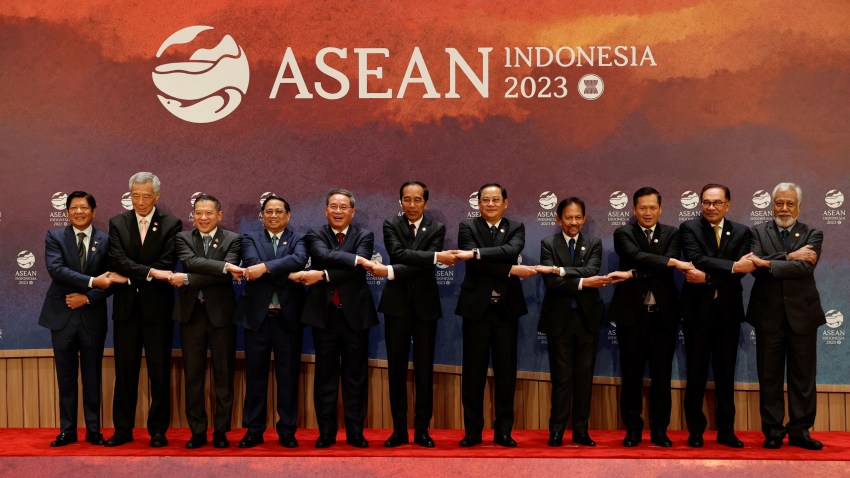During his inaugural appearance at last week’s Association of Southeast Asian Nations, or ASEAN, summit, Chinese Premier Li Qiang painted a rosy picture of China-ASEAN relations. “We have preserved peace and tranquility in East Asia in a world fraught with turbulence and change,” Li claimed confidently. “We seek common ground while setting aside differences, properly handle disagreements through dialogue and consultation, and consistently deepen practical cooperation in traditional and non-traditional security views.”
In fairness, Beijing has a lot be optimistic about when it comes to its economic relations with what has become one of the world’s fastest-growing regions. This year, Southeast Asia overtook both the U.S. and Europe to become China’s top export destination. Maritime trade between ASEAN and China reached a staggering $600 billion a month, eclipsing the Asian superpower’s trade with the West.
The broadly encouraging economic picture, however, has gone hand in hand with rising geopolitical tensions in the region. In fact, Li’s speech came on the heels of China’s ill-timed release of a controversial map, in which various areas disputed with its neighbors are depicted as Chinese territory. The map drew a chorus of criticism from Malaysia, Vietnam, the Philippines and even Indonesia, all major ASEAN members. This week’s ASEAN summit also came just weeks after the Philippines and China almost came to blows in the South China Sea over the Second Thomas Shoal, where Chinese coast guard vessels fired a water cannon to prevent a Philippine naval vessel from accessing the Manila-administered shoal. For its part, Vietnam has also accused China of violently harassing its fishing fleets and oil exploration vessels in disputed areas of the South China Sea.

